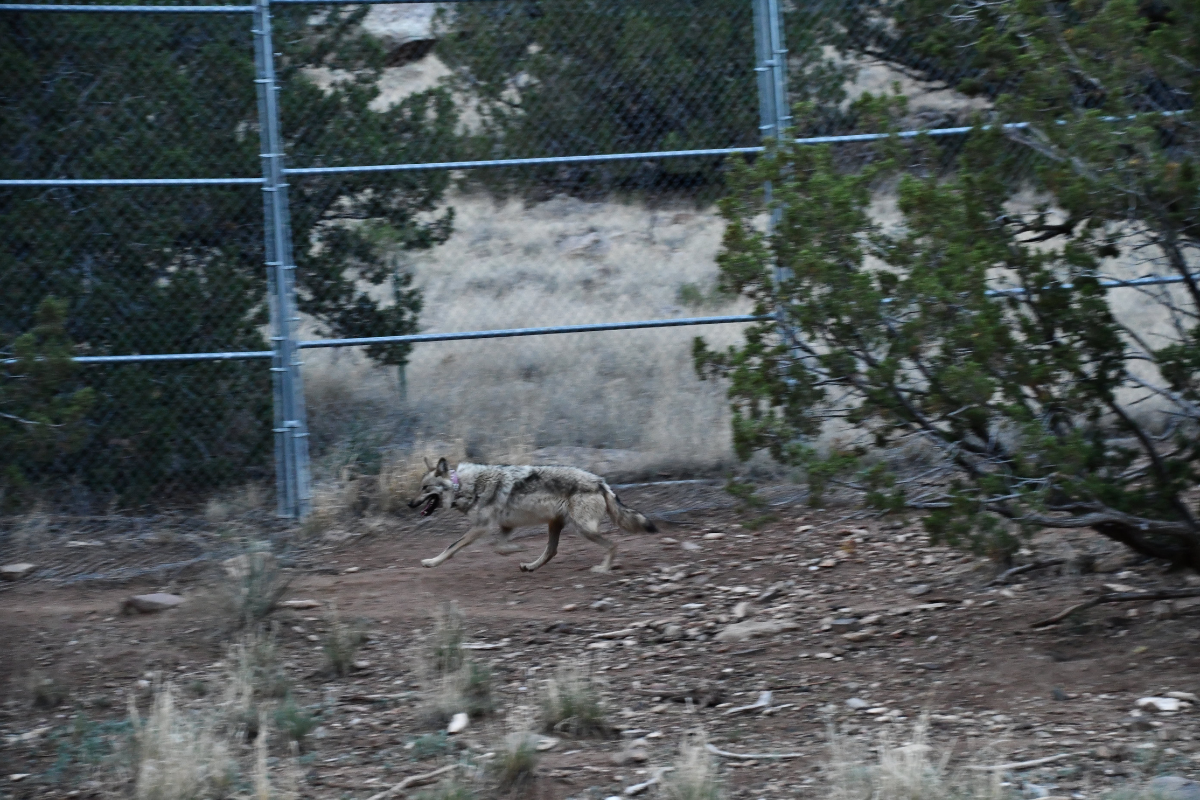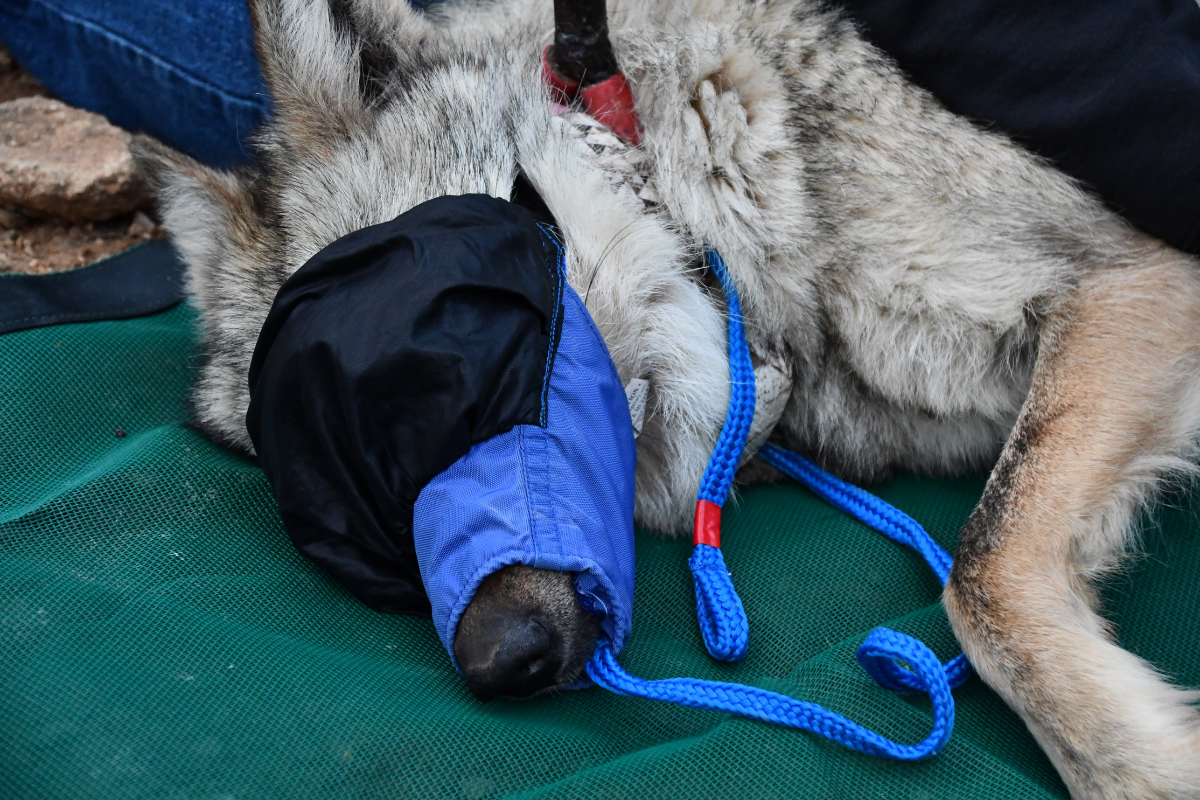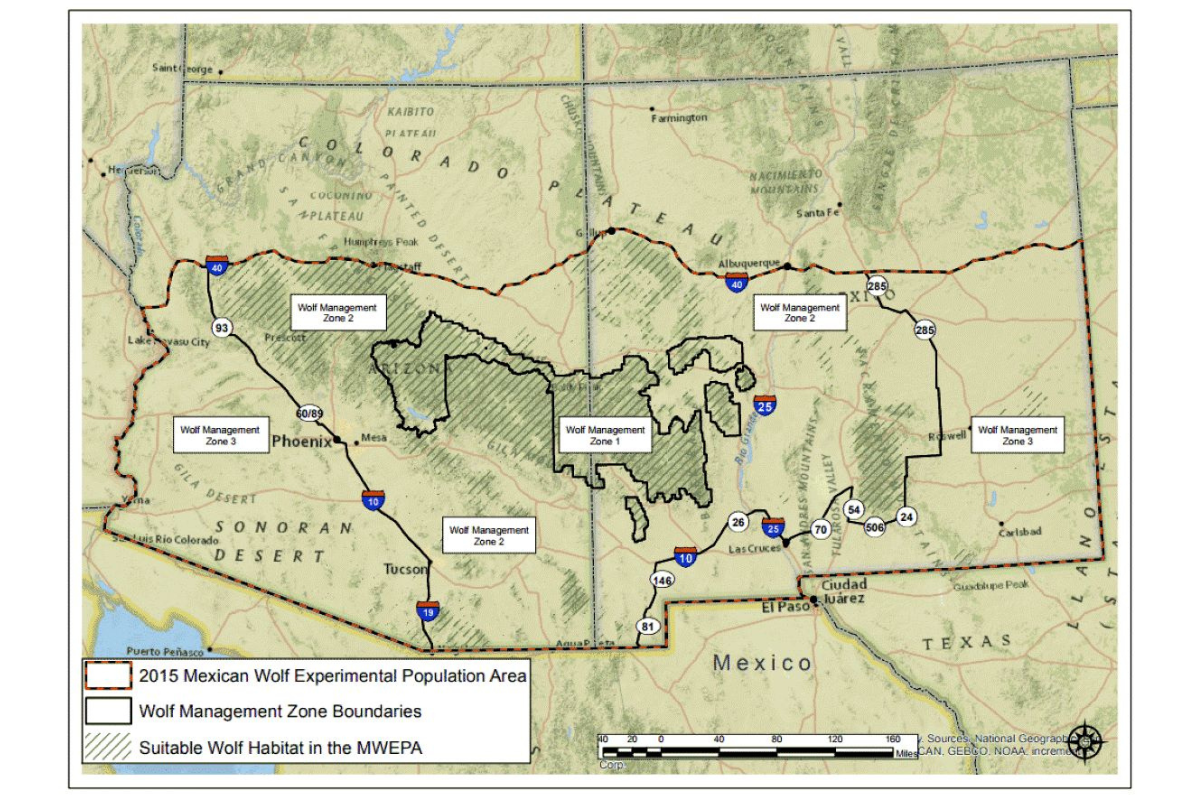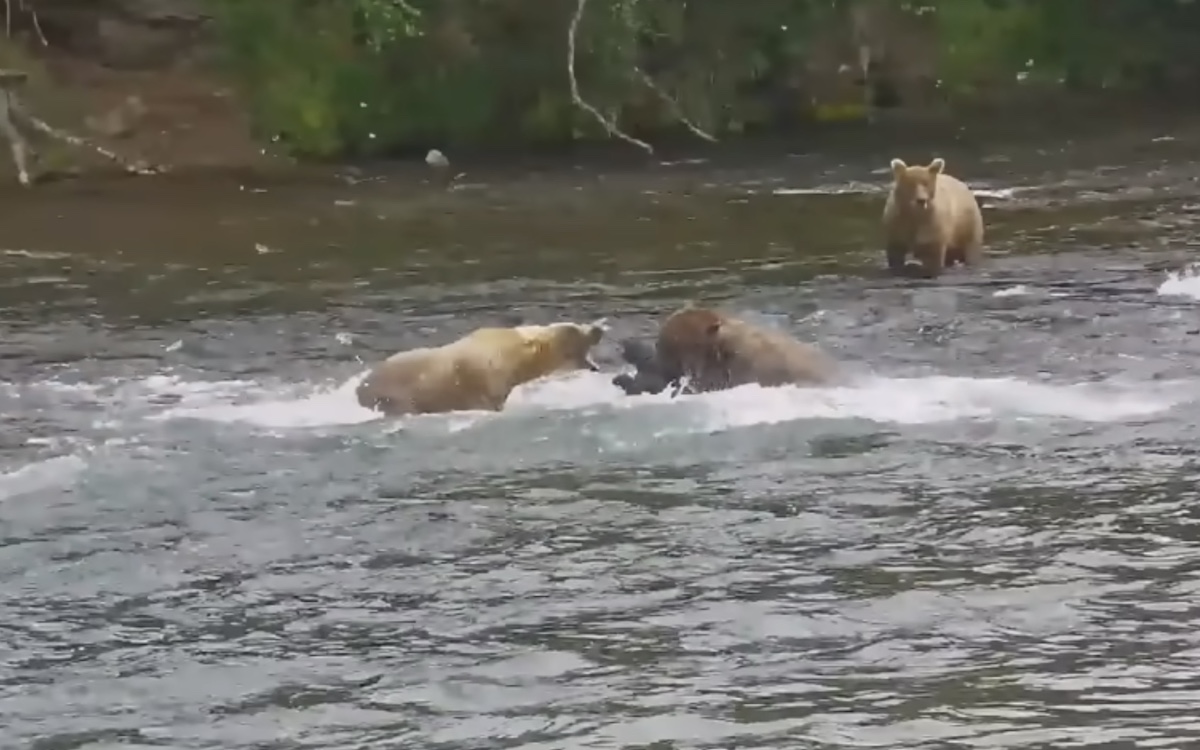

A female Mexican wolf appears to have little interest in staying home. For the second time in two years, a tracking collar recorded a female wolf heading north through New Mexico.
Videos by Outdoors with Bear Grylls
According to a new U.S. Fish and Wildlife Service (USFWS) press release, the last known location of the wolf was in the mountains northwest of Santa Fe. The wolf is part of a revitalization effort, but experts say the animal keeps journeying out on her own.
The wolf, also known as F2754, is part of a population of wolves placed in the Mexican Wolf Experimental Population Area (MWEPA). The area is in the southern part of New Mexico and Arizona. Wildlife experts hope the area can help revitalize the population, but this wolf has little interest in staying.
A Short History of Wolf F2754
Wolf F2754 was born in 2021, but by the fall of 2022, she left the pack and ventured out independently. The animal traveled nearly 500 miles from Arizona to Taos, New Mexico. Earlier this year, Fish and Wildlife Services captured the wolf and moved it back to Arizona.

“The decision to move this wolf back to the MWEPA at the time was consistent with policies outlined in the Service’s Recovery Permit,” wrote the USFWS in a press release from earlier this year. “In addition, the lack of other wolves in the area meant there was no chance for female wolf 2754 to breed and contribute to Mexican wolf recovery.”
The Endangered Species Act protects the wolves outside the MWEPA. That means unless the wolf is threatening people, no one is allowed to haze or harass the animal.
There’s no word on whether or not the U.S. Fish and Wildlife Service will once again relocate F2754 back to the MWEPA.
Protecting Mexican Wolves

Recent reports show that the conservation efforts of the Mexican wolf are working. Earlier this year, the wolf population in the American Southwest hit above 200 wolves for the first time since they started keeping data. The latest numbers show a 23% increase in wolves year over year.
The animal is a subspecies of the gray wolf, found in some northern states of the U.S.










